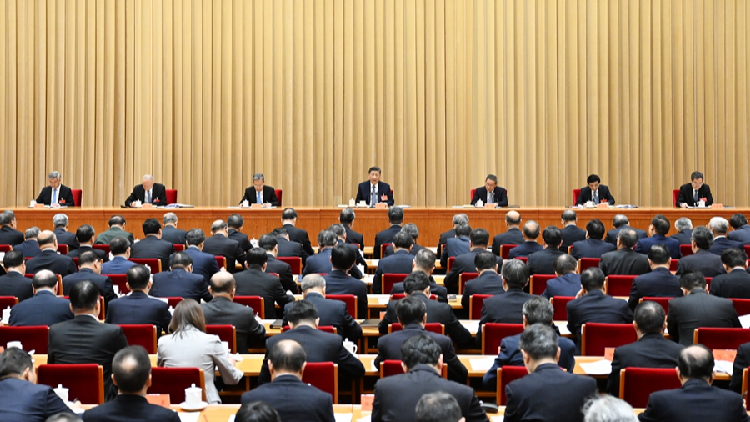China outlines economic objectives for 2025, promises more proactive macro policies
The Central Economic Work Conference took place in Beijing from Wednesday to Thursday, where Chinese leaders outlined their priorities for the economic initiatives planned for 2025.

Xi Jinping, who serves as the general secretary of the Communist Party of China Central Committee, Chinese president, and chairman of the Central Military Commission, presented a significant speech during the annual gathering.
The conference indicated that, despite facing a "complex and severe situation of growing external pressures and increasing internal difficulties," China has managed to maintain overall economic stability and steady progress. The meeting expressed confidence that the major goals and tasks for economic and social development in 2024 are expected to be met.
It emphasized the necessity for China to implement more proactive macro policies, expand domestic demand, and advance the integrated development of scientific and technological innovation alongside industrial innovation to effectively manage economic activities in 2025.
Additionally, the meeting highlighted the importance of ensuring the steady growth of the real estate and stock markets, mitigating risks and external shocks in critical areas, and stabilizing expectations and spurring vitality to foster sustained economic recovery.
In terms of fiscal and monetary policy, the meeting revealed that China will pursue a "more proactive" fiscal strategy. This will involve raising the deficit ratio and increasing the issuance of ultra-long special treasury bonds, as well as local government special-purpose bonds.
According to the Ministry of Finance, China's government debt-to-GDP ratio was recorded at 67.5 percent at the close of 2023, significantly lower than the G20 average of 118.2 percent and 123.4 percent for G7 nations, as estimated by the International Monetary Fund. China's fiscal deficit has consistently remained below 3 percent, placing it well below other major economies.
With a relatively low government leverage ratio, the central budget has room for additional borrowing and deficit expansion, noted Minister of Finance Lan Fo'an in October.
The conference outlined that China will adopt a "moderately loose" monetary policy, including potential reductions in the reserve requirement ratio and interest rates to ensure sufficient liquidity.
This marks the first shift from a "prudent" to "moderately loose" monetary policy stance since 2011.
In early 2024, the People's Bank of China, the nation's central bank, has implemented two cuts to the reserve requirement ratio, totaling a reduction of 1 percentage point for financial institutions, thereby releasing around 2 trillion yuan in long-term liquidity.
The Central Economic Work Conference identified nine priorities for economic initiatives in 2025, encompassing the stimulation of consumption, development of new quality productive forces, and the prevention and management of risks in critical sectors, in addition to consolidating achievements in poverty alleviation and enhancing green development.
A focus on revitalizing consumption, enhancing investment efficiency, and expanding domestic demand across the board was stressed during the meeting.
China continues to stand as one of the largest markets globally. From January to October of this year, total retail sales of consumer goods in China approached 40 trillion yuan, while last year's total surpassed 47 trillion yuan, according to the National Bureau of Statistics.
A national initiative for promoting trade-ins of consumer goods, introduced in March, has underscored the potential within China's domestic demand. The program has attracted over 30 million participants, leading to total sales exceeding 400 billion yuan.
The two-day conference also underscored the need for intensified efforts to facilitate high-level opening-up and ensure the continued growth of foreign trade and investment.
"China's development is open and inclusive," remarked Xi during his meeting with leaders from major international economic organizations, including the IMF, a day before the conference commenced.
Moving forward, China will establish new systems for a higher-standard open economy, create more opportunities for other countries’ development, and share additional benefits of growth globally, as stated by Xi to attendees at the Great Hall of the People.
Beginning December 1, China has initiated zero-tariff treatment for all tariff lines for least developed countries with which it maintains diplomatic relations.
This initiative aims to facilitate the entry of more products from these nations into the Chinese market, enhancing opportunities and driving development, explained Lyu Daliang, an official from China's General Administration of Customs.
Camille Lefevre for TROIB News
Find more stories on Business, Economy and Finance in TROIB business












